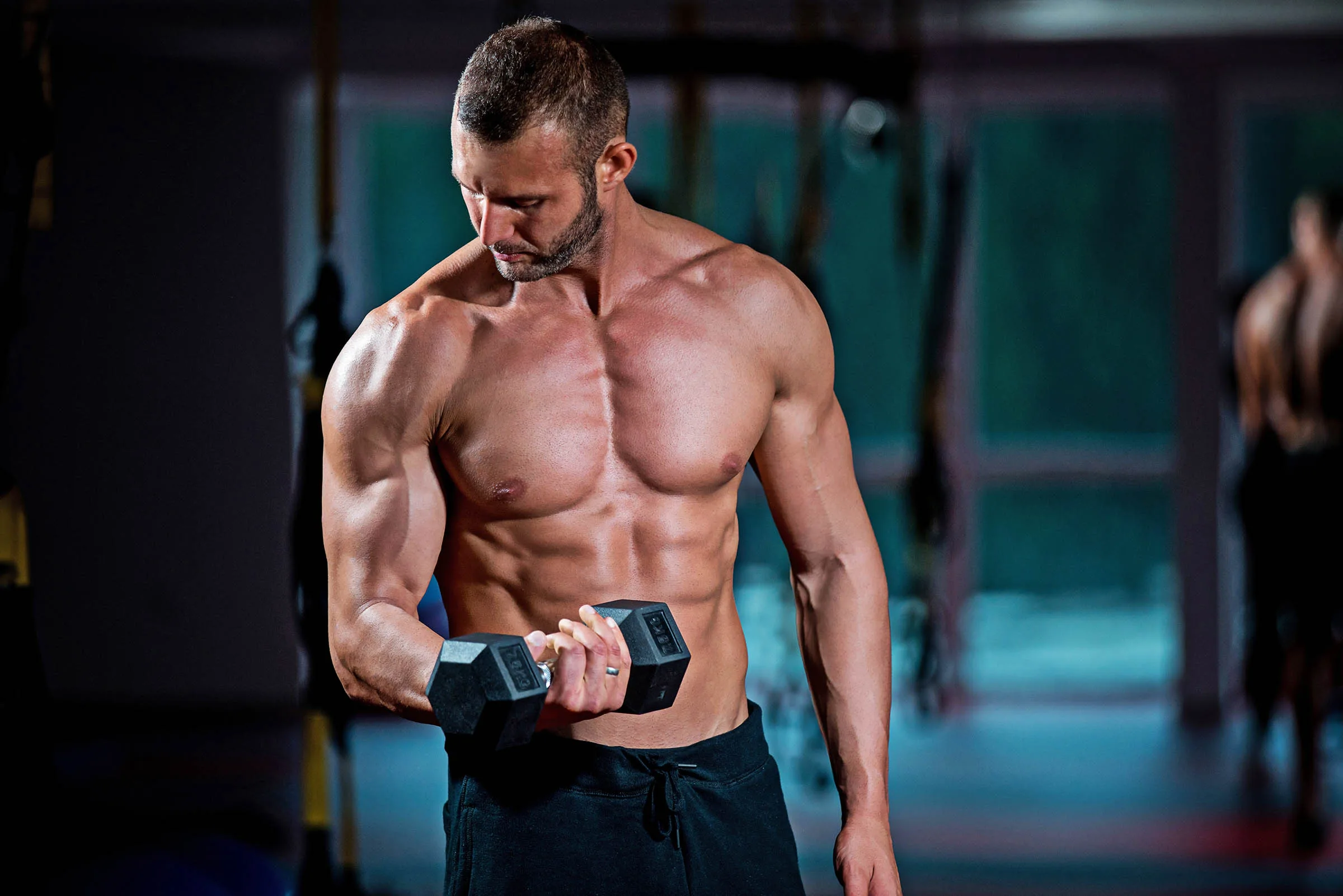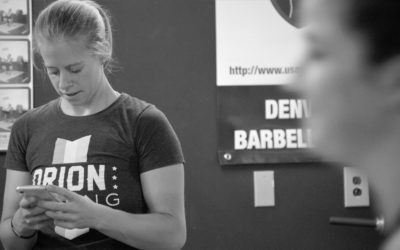The Vegan Athlete’s Guide to Building Muscle

Fred Ormerod is a freelance coach, army reserve medic, nurse, master’s student, and masseuse. He’s spent a decade working in healthcare and five years coaching in one of Edinburgh’s leading training facilities. Keep reading to find out his recommendations and tips for athletes following a vegan diet.
Fred Ormerod


Change the Way You Train
A Vegan Diet Can (and Does!) Work For Athletes
Vegan diets work for athletes across the sports spectrum. There’s a long list of high-level athletes who are reportedly vegan, including:
- Colin Kaepernick (football),
- Tim Shieff (parkour),
- David Haye (boxer),
- Venus & Serena Williams sisters (tennis),
- and Barny Du Plessis (bodybuilding).
I know lots of coaches (myself included) who are thrilled to get new clients who follow a vegan or vegetarian diet. Such a lifestyle choice requires more creativity, intention, and planning.
The obvious concern for most people is that strict vegan diets are often lower in protein (the key ingredient in muscle synthesis), as well as other essential micronutrients.
As long as you’re conscious of what you’re putting into your body and make a plan to get all of your macros/micros, building muscle as a vegan athlete is no problem at all.
Are You Getting Enough Protein?
When protein is more available for synthesis, it’s easier for your body to build, repair, and maintain muscle. Though this can vary between individuals, exceeding this amount is not always beneficial. I recommend tracking your protein intake starting at 1.8g and working up over time to see what works for you.
But how do you know what works best for you? Consider cost, digestive comfort, muscle gain, satiety, and taste. And, most importantly, you need to ask yourself, “What are my goals?”
Do you want to be a bodybuilder? A strength athlete? An endurance athlete? Or just be ripped enough that you’re happy taking your top off at the beach?
Once you understand your goal, it’s easier to build a plan around your eating.
If your goal is just to establish a solid body composition, you’ll likely see results when you’re just starting your vegan diet (even if you don’t hit your protein target every day).
If your goal is to gain some serious muscle, you need to be a little more conscious of hitting your protein target.
Vegan-Friendly Snacks for Extra Protein
Should you hit a muscle-building plateau on your way to winning the Olympia, then protein intake is one of the first places to look.Most of my athletes aim for at least 1.8g per kg of body weight. Those trying to put on muscle realistically aim for 2g+ per kilo of body weight.
If you’re struggling to hit your protein goal, check out the table below for some high-protein vegan foods that make delicious snacks.
| Protein source | Grams of protein per 100g |
| Hemp seeds | 33 |
| Peanuts | 25 |
| Sunflower seeds | 23 |
| Pistachios | 20 |
| Tofu | 17 |
| Chickpeas | 9 |
| Lentils | 9 |
Common Vitamin Deficiencies In Vegan Athletes
Cutting out a source of nutrition can lead to nutrient deficiencies if you’re not careful. I provided a list of the most common deficiencies among my vegan clients.
If you’re experiencing any of these symptoms, try supplementing with the recommended food source. It might also be in your best interest to get a blood test to see if you’re deficient in any essential vitamins. And of course, see a doctor if anything unusual is going on!
| Deficiency | Symptoms | Food/supplement source |
| B12 |
|
B complex vitamin supplement Nutritional yeast Tempeh Cremini Mushrooms |
| Omega-3 fatty acids |
|
Chia or flax seeds Olive and other plant oils (avocado oil, sunflower oil) |
| Vitamin D |
|
Mushrooms Sunshine Almond milk Soy milk Orange juice Oatmeal |
| Iron |
|
Nuts Dried fruits, like raisins Beans Lentils Spinach Peas |
| Iodine |
|
Iodized salt Soy milk Seaweed Cranberries Potatoes Prunes |
Supplement Your Success
Studies show that creatine and beta-alanine supplementation is effective in vegan athletes, just as it is with non-vegans athletes. And in case you’re wondering – yes! Most creatine is vegan-friendly, but check the label just to be sure.
Creatine:
Creatine improves short-term performance of high-intensity exercise, muscle hypertrophy, and maximum strength. It also increases plasma volume (for a better pump) and glycogen storage (for longer training) while reducing oxygen consumption during submaximal exercise (meaning less fatigue from cardio sessions).
Loading creatine provides the best results in athletes who might naturally have lower creatine stores (vegans). So taking 20g per day for 3-7 days followed by 3-5g per day after is a good way to ensure creatine saturation.
Coach’s Tip: Creatine powders are a much safer bet when going vegan as many capsules are made from bovine products.
Beta-alanine:
Beta-alanine improves output on intense training sessions by reducing fatigue in activity lasting more than 60 seconds.
Like creatine, it is best loaded, especially if you want to avoid the feeling of itchy skin associated with pre-workouts. Divided doses of up to 4-6g per day every day for 2-4 weeks are recommended, followed by daily doses of 2-5g to maintain levels.
Vegan Athlete Sample Meal Plan
Here’s a suggested meal plan to give you an idea of what a typical day of eating looks like as a vegan athlete trying to gain muscle. Of course, change to your taste and specific protein requirements, but generally following this plan provides you with enough protein to feel full and gain some muscle.
| Meal | Food Source | Protein Amount |
| Breakfast | Soy yogurt with protein powder, granola | 32g |
| Snack 1 | Toasted sweet potato and peanut butter – slice up sweet potato and cook in the toaster, add peanut butter. | 23g |
| Lunch | Korean vegan bowl | 25g |
| Snack 2 | Smoothie | 30g |
| Dinner | Vegan Bolognese | 27g |
| Bedtime snack |
Protein powder | 35g |
| Total | (This theoretical day would work for a person between 73-96 kg) | 172g |
6 Tips For Muscle-Building Success As a Vegan
To sum things up, these are the top tips for success I recommend to any vegan athlete.
1. Plan. Understand what your body needs (1.8-2g x body weight in kilograms of protein per day). Knowing what/how much you’re going to eat and how much makes life so much easier.
2. Take the time to experiment. Once you have a plan, let the results follow in time. Remember that building muscle isn’t as simple as just eating protein. It takes training, a holistic nutrition plan, and proper rest to build up over time. See what works and what doesn’t. There’s no rush.
3. Supplement. Supplementing protein works well for some, but not others. Find one you like and it will help tremendously. More than one shake or scoop doesn’t hurt either.
4. Play chef. Building a greater repertoire of recipes helps you meet all nutrition targets. Make food you like to eat and it won’t be a chore if you need to eat more of it to reach your goals.
5. Give yourself breaks. Let yourself take breaks where you don’t focus on food so much. I call these “hedonic breaks” and they massively help with adherence to a long-term plan.
If you’re having to eat what feels like huge amounts of food to hit a protein/calorie target, give yourself a week every 6-8 weeks where you eat less or more intuitively off plan. One week off isn’t going to make a huge difference to your muscle mass, and it helps you stay in muscle-building mode for longer.
6. Snack. Adding snacks to your day helps add up the protein count as well as makes digestion easier.
Though it’s not always as simple, building muscle is perfectly possible on a vegan diet. As long as you understand your goal, plan your meals, stay aware of common deficiencies, and train hard, following a vegan diet poses no threat to your muscle-gaining ability.
Find Your Perfect Training Plan
Sometimes all you need to reach your destination on your fitness journey is an expert guide. We've got you covered. Browse from thousands of programs for any goal and every type of athlete.
Try any programming subscription free for 7 days!
Want Training Tips, Exercise Guides & Knowledge Bombs Sent to Your Inbox?
Sign up for the FitNerd newsletter from TrainHeroic
Related articles
Active Recovery Strategies for Strength Athletes
Active recovery isn’t just about taking it easy—it’s a smart way to keep your body moving, boost circulation, and enhance performance without adding fatigue. While passive recovery has its place, low-intensity movement between sessions helps reduce stiffness and...
Intermittent Fasting for Shift-Working Athletes
Shift work can make fueling for performance feel like a constant battle. Between erratic schedules, disrupted sleep, and unpredictable training windows, sticking to a nutrition plan can be tough. Intermittent fasting (IF) offers a flexible approach that may already...
Effective Ways to Coach At-Home Athletes
Transitioning to remote coaching presents unique challenges for strength and conditioning coaches, especially when athletes lack access to standard gym equipment. Effective communication and creative programming are essential to maintain engagement and ensure athletes continue to progress in their training.

Join the community
Sign up for the latest training news and updates from TrainHeroic

About TrainHeroic
Made with love, sweat, protein isolate and hard work in Denver, CO
© 2023 TrainHeroic, Inc. All rights reserved.





